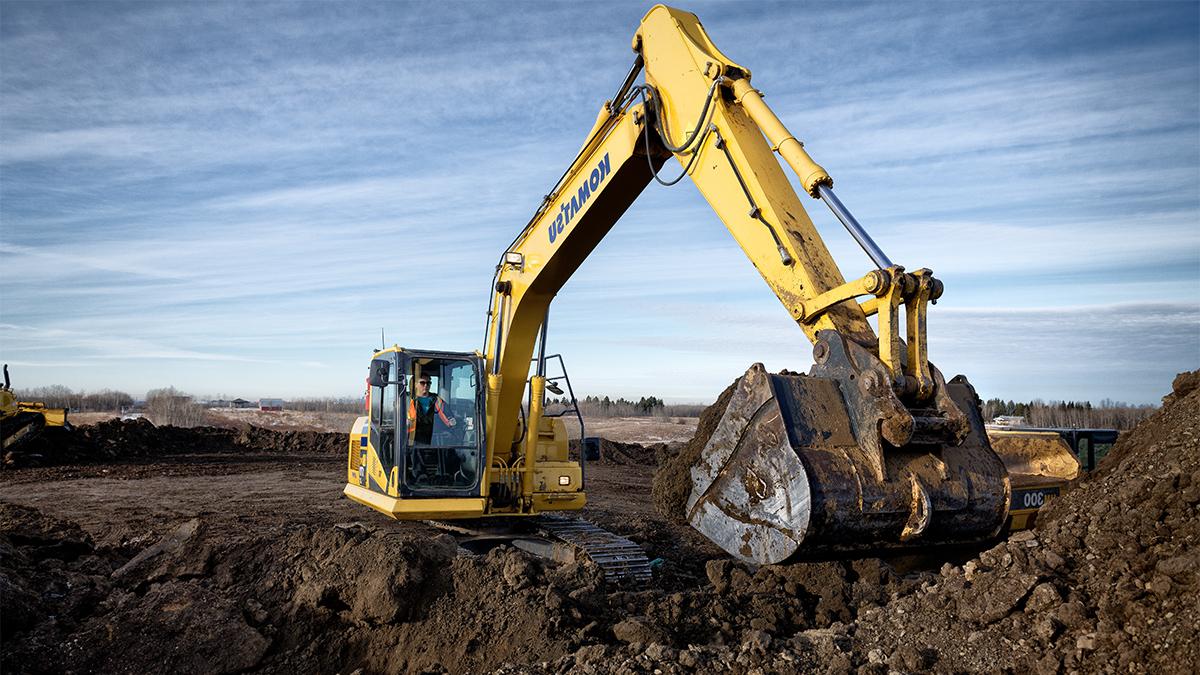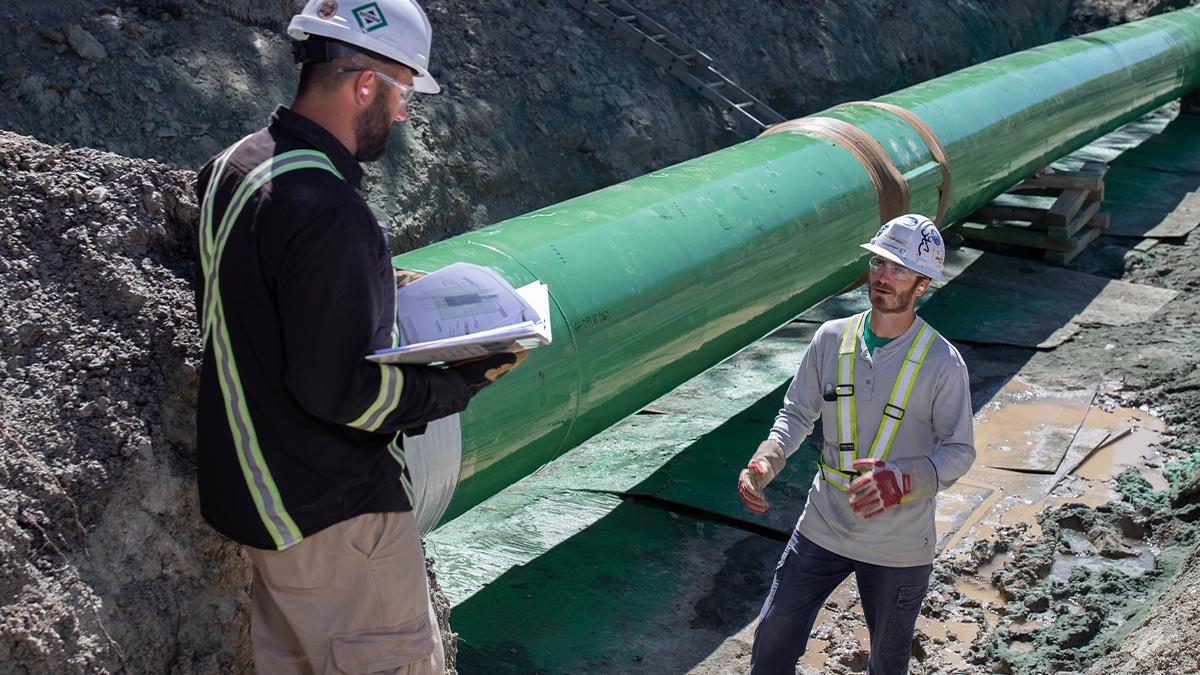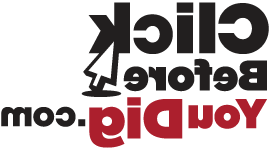Safe Digging
Pipeline safety is about more than just safe digging. When living and working around pipelines, you need to know the facts so that you can help keep your family, worksite or community safe. Here you can access information about various situations that could pose risks to pipelines, and how to prevent those risks from becoming reality.
Thank you for taking safety seriously.
Explore safe digging topics


Driving over pipelines
When working on new forestry roads or cleared areas in rural land, it can be easy to miss or ignore pipeline markers. Find out how heavy loads can impact a pipeline and what steps you can take to prevent damage.

Homeowner DIY
Building a deck or installing fence? A project doesn’t have to be big to need a One-Call. Anytime you put a digging tool in the ground, you need to be sure of what is underneath, so you can prevent dangerous situations. Why take the risk?

Drainage or trenching work
Fixing drainage issues is one of the highest-risk activities around pipelines. The heavy equipment and depths involved can put you and the pipeline in imminent danger.


April Dig Safe Month
For many, April marks the beginning of a busy construction season. Remember, always call or click before you dig. It’s a free and fast service. Why take the risk?


Do’s and Don’ts on a ROW
Do you know which activities on a right-of-way are safe and which are not? Get educated about how to use a ROW safely and responsibly.

Youth Energy Safe Program
Everyone has a part to play in safety. Our program teaches youth about underground utility safety through a variety of educational resources including presentations, videos, and materials for interactive games.
Life-saving information
Consequences of unsafe digging
Did you know that in most provinces and states, it is a legal requirement to contact your local One-Call service before digging or excavation? These cosequences may include:
Fines and repair costs to fix the underground utility
• Provincial, state or federal regulators can levy hefty fines to both the person excavating and the company responsible, depending on the local regulations
• Repairs to utilities often cost more than the value of your original project, not including reclamation and clean-up costs
Interrupted services such as electricity, gas and water
• Underground utilities carry essential and critical services for the community. Interruptions to these are more than just minor inconveniences; they can put people, businesses and livelihoods at risk
• Some utilities are buried as little as 12 inches below the surface, so even a simple shovel can cause serious damage
Risk of serious injuries and death
• Since 2008, the Pipeline and Hazardous Materials Safety Administration (PHMSA) has reported 715 injured workers and 79 fatalities due to damages done to underground infrastructures during excavation work*.
Frequently Asked Questions
I know where the pipeline is, do I still need to make a One-Call?
You can never be sure where underground utilities are unless they have been marked by a professional. Utilities can shift from erosion or natural forces or new ones may have been installed without your knowledge. Using the free One-Call service allows you to conduct your work safely.
How do I contact my local One-Call service?
Luckily there are resources to help you reach your local service easily. In Canada, you can visit www.ClickBeforeYouDig.com to find your local One-Call service, as well as other useful safe-digging rules and regulations in your province. In the U.S. you can dial 811 or visit www.call811.com to get in touch with your state’s provider.
When do I need to make a One-Call?
You need to make a locate request anytime you are disturbing the ground. This includes digging, piling material, paving or even driving equipment over a right-of-way. Any action that could impact something below the surface counts as ground disturbance.
What is a crossing agreement?
A crossing agreement is an agreement between you and the pipeline operator that allows you to conduct your work safely with the permission and understanding of the pipeline operator. Any changes to your work need to also be approved to ensure your safety.
How do I know if I need a crossing agreement?
If you plan to do any work on a right-of-way or access the right-of-way while conducting your work, there’s a good chance you need a crossing agreement. To find out for sure, you can either make a One-Call and wait for the pipeline operator to contact you, or you can contact the pipeline operator directly through their crossings team. Contact information can be found on this page.
What is the “prescribed area”?
The prescribed area is the area that extends 30 metres on either side of the pipeline centerline. Ground disturbance within this area requires written consent.
Signs of a potential pipeline leak

What you may smell
Natural gas
- Transmission lines that transport natural gas across Canada are rarely odourized, but may have a slight hydrocarbon smell. Distribution lines that transport natural gas to homes and businesses are odourized and could smell skunk-like or similar to rotten eggs.

What you may see
Natural gas
- Dead or dying vegetation on or near a pipeline in a normally green area
- Water bubbling or blowing into the air at a pond, creek or river
- Dirt being blown or appearing to be thrown into the air
- An accumulation of ice or frost over the pipeline (in the summer)

What you may hear
Natural gas
- A hissing, roaring or bubbling sound
Emergency contacts
Canada
In case of emergency, call:
1-888-982-7222
Contact our crossings team:
Apply for crossing online
1-877-872-5177
crossings@371382.com
quebec_crossings@371382.com
Landowner inquiries:
1-866-372-1601
cdn_landowner_help@371382.com
General inquiries:
1-855-458-6715
Public_awareness@371382.com

Emergency contacts
United States
In case of emergency, click here for contact numbers
Contact our US crossings team:
1-800-562-8931
us_crossings@371382.com
Landowner inquiries:
1-877-287-1782
General inquiries:
1-855-458-6715
Public_awareness@371382.com

Emergency contacts
Mexico
Call before you Dig:
01-800-111-3333
General Inquiries:
55-1100-2900
informacion_mexico@371382.com
